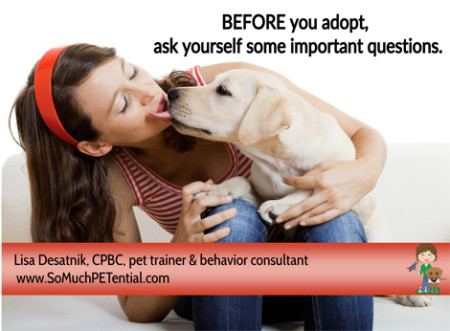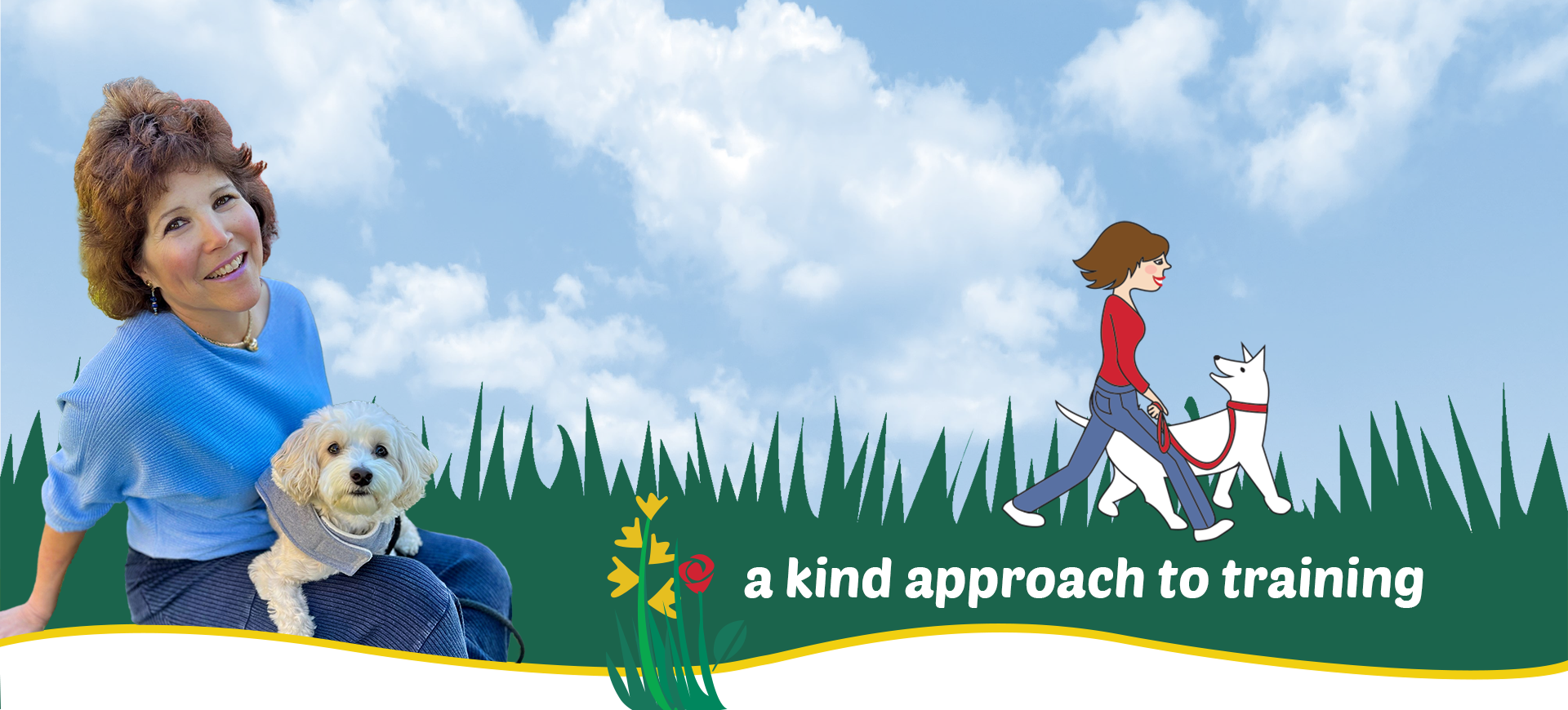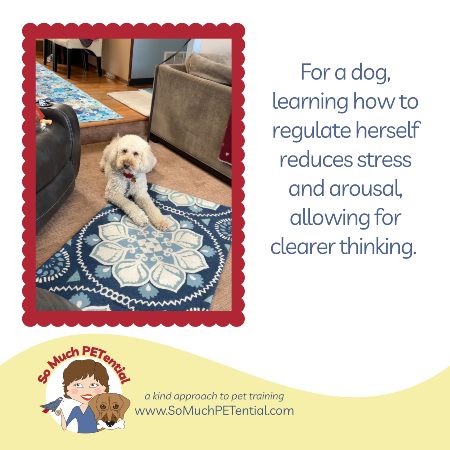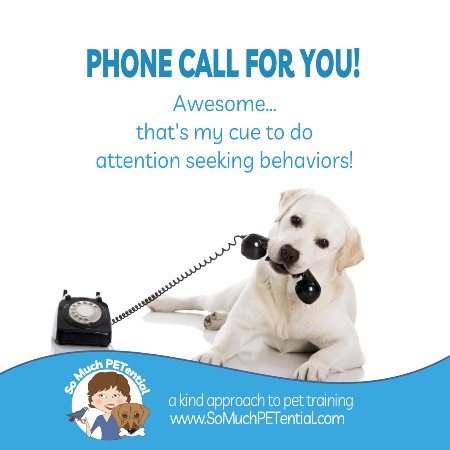Going to a pet adoption event like My Furry Valentine, it is so easy to fall in love at first sight. Those dogs and puppies (and kittens and other animals for that matter) have a way of getting into your heart, and before you know it, you are walking off with a new friend…with whom, if all goes well, you will be sharing a home for many years to come.
Many times the reason dogs and puppies are in rescue situations to begin with are because those animals, for any number of reasons, were a mismatch for their adoptee. Or, if those animals are not surrendered, they may not be living out their fullest potential; and may be a source of much stress for their human companions…definitely probably not the initial intention of bringing home a new pet.
 To help ensure you don’t become one of those statistics, BEFORE leaving for the adoption event, give these things some thought:
To help ensure you don’t become one of those statistics, BEFORE leaving for the adoption event, give these things some thought:
Ask yourself.
Can you afford a new puppy or dog? A puppy’s first year will include vaccines, spay or neuter surgery, and other possible medical expenses. Medical expenses and grooming expenses (depending on the breed) will need to be budgeted for. You will also need a dog crate, exercise pen or baby gate (for puppies especially), an ongoing supply of treats, high quality dog food, a comfy bed, a leash and collar (halter, Martingale or gentle leader), and training. You may also need to fence in your yard. And, if you plan on vacationing, you will need to add the expense of care for you pet.
Should I adopt a puppy or an adult dog? Bringing a puppy into your home is like bringing home a baby. They are living, breathing, chewing, playing, barking, eating and urinating beings. Those first six months are so super important to your puppy achieving its fullest potential. Management and training are critical, and can seem all consuming for a period of time. Are you prepared for the impact this will have on your life? Are you prepared for the possible damage to your home when mistakes happen? Before adopting a puppy, ask questions to find out as much as you can about how it was raised and socialized; its health history; and its temperament.
With adults, there are many who are well trained with no history of problem areas who are just in need of a second home. There are others who do have problem behaviors that will need to be worked through with training using positive reinforcement. And there are still others who have very significant behavior issues that will require someone who has the knowledge to be able to help them, and the willingness to make necessary changes to their home and lifestyle to manage the dog. Good intentions alone are not enough to help a dog who has significant issues. Be honest about asking yourself if you have the time, the environment and the knowledge to really help a dog like that before bringing him/her into your home.
What traits am I looking for in a dog? Does size matter? Remember that a larger dog will need more space, larger crates and toys, more food, etc. Do you want a dog who will lounge on the couch all day or who will need a great deal of exercise and mental stimulation? Remember, boredom and lack of needed enrichment can be the culprit for many unwanted behaviors. Is it important to you that your dog plays well with other dogs? Does it matter if your dog sheds a lot? Is slobbering tolerable or intolerable? Do you want a dog who will need to be groomed on a regular basis? Certain breeds have greater risks for some health issues. These are just some of the considerations to think about. Be realistic with yourself in terms of your lifestyle – now and in the future.
When choosing a puppy or dog, a few things you may want to watch for are: how the puppy/dog plays, how the puppy/dog reacts to being petted, is the puppy/dog reactive, does the puppy/dog approach strangers or back up from them.
Have I considered what general dog breeds I should consider? Animal Planet has a good one that asks you some questions (like ones I mentioned above) and then makes suggestions on compatible breeds. It is really important to know before taking the test that, while the suggestions are based upon predictably, every animal is an individual. Even within the same litter you will find dogs who differ in temperaments, exercise needs and more. And adopting a dog (such as a golden retriever) who is *supposed* to be great with children does not mean that your specific dog will be that way. Genetics and how it is raised both factor into that.
If I have young children, do I have time to help their relationship succeed with the pet? Young children should always be proactively supervised when interacting with your pet, as EVERY dog will have a limit of what it will and will not tolerate. Your dog should have its own personal space when it wants to be alone. Do you know how to read dog body language and know when to intercede? There is training that will need to be done for both your dog and your children to teach them appropriate behavior around each other. A positive dog trainer can work with you to teach you and your children how to interact appropriately with your dog, and help to set you and your family up for success. I have a class just for kids. Please click here to be contacted for future dates.
If I have other pets, am I able to devote what is needed to help that relationship succeed? Not all dogs are naturally great with other pets. A careful management and desensitization plan may be needed, and will go a long way toward helping the animals succeed.
When you do come home with your new friend,
Just know that as your puppy’s caregiver and teacher, it is up to you to teach him appropriate skills to succeed in your household and in life; and to work to prevent inappropriate behaviors.
The good news is that all of those skills are teachable with clear, positive communication….and patience. What are some of those skills? Teaching bite inhibition, crate training, house training, calm behaviors and other basic behaviors (come, sit, down, stay, wait, etc.), socialization to a variety of people, dogs, things and places, teaching the value in enrichment toys, prevention of resource guarding and chewing on inappropriate things, just to name a few.
Remember, your puppy is constantly learning. Beginning his life journey with you by teaching him with positive reinforcement will create a dog who loves to learn, loves being around you, and listens to you.
Your new adult dog too is constantly learning, and will benefit from clear, positive communication.
I’d enjoy helping you on that path.







